
China online travel market reached 44.88 billion yuan (US$7.00 billion) an increase of 48.1% YoY in 2014. And, China’s online travel market is expected to total 63.06 billion yuan (US$9.84 billion) in 2015, an increase of 40.5% compared to the previous year estimated by iResearch.
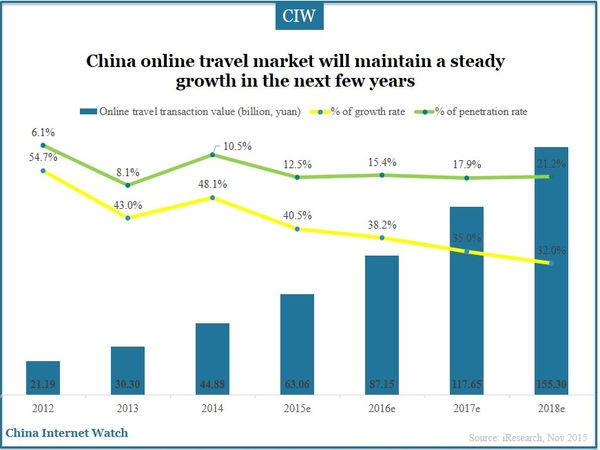
China’s online travel market is expected to total 63.06 billion yuan (US$9.84 billion) in 2015 with an increase of 40.5% compared to the previous year. 12.5% internet users will buy travel products online. China’s online travel will maintain a steady growth rate in the next several years with an annual growth rate over 30%.
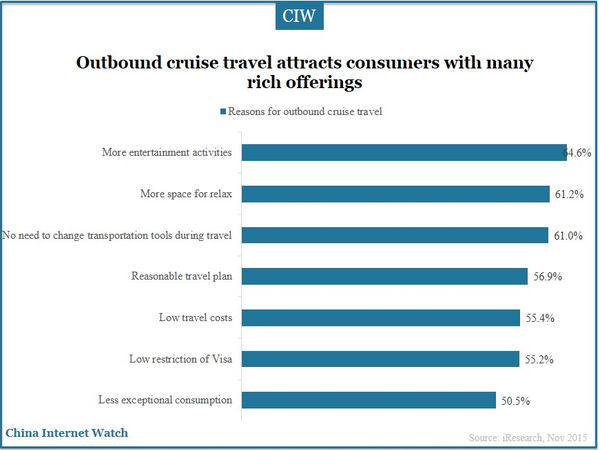
Outbound travel by cruise in China has become fashionable in large and developed cities in recent years. Compared to other outbound travel means, cruise travel could offer more activities for entertainment and relaxation, and travelers won’t need to get on and off trains or planes during trips which can save a lot of money for travelers.
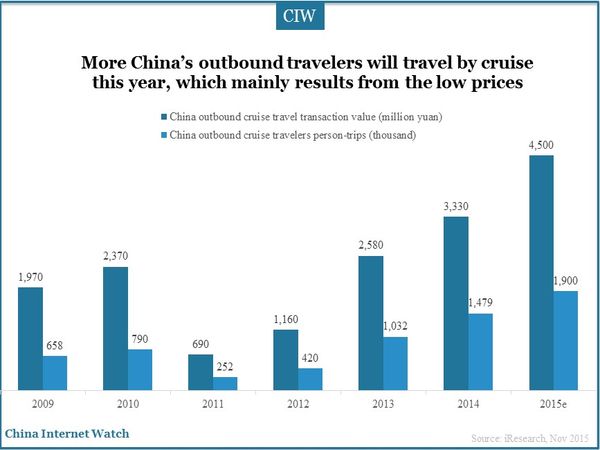
China’s outbound cruise travelers increased to 1.48 million person-trips in 2014 and the number is predicted to reach 1.9 million person-trips in 2015, gaining 4.5 billion yuan (US$0.70 billion) for China’s online travel market. More outbound travelers will travel by cruise in the future.
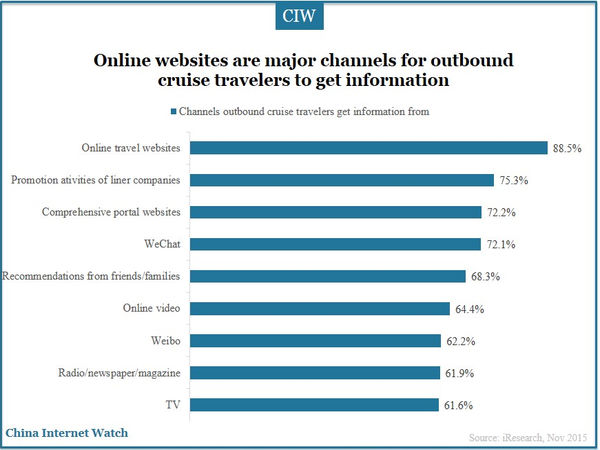
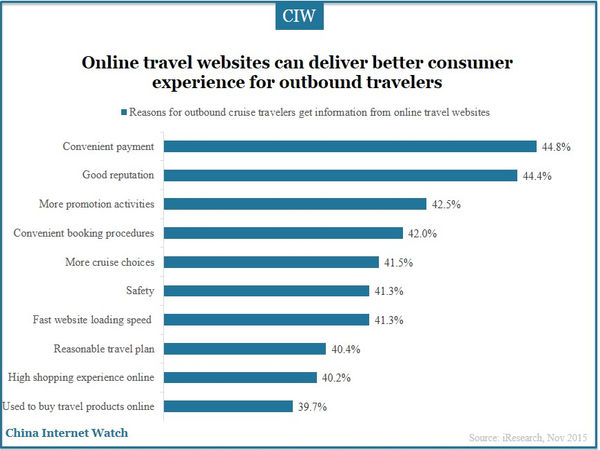
Online travel websites are the main channel for travelers to receive cruise travel information. Promotion activities of cruise travel and information on comprehensive portal websites can attract more travelers. A large number of cruise travelers will order on online travel websites mainly owing to the convenient payment, good public reputation and more promotion activities.
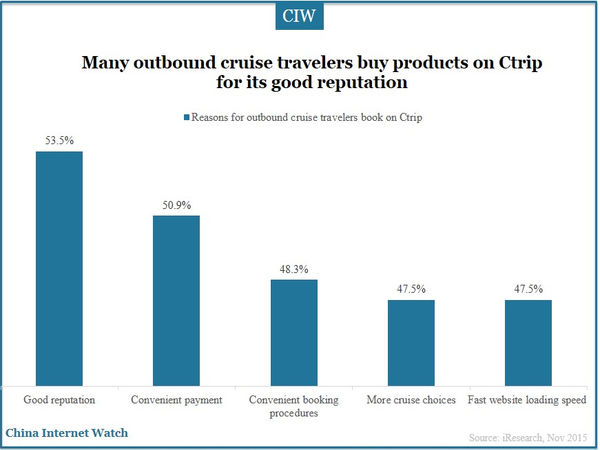
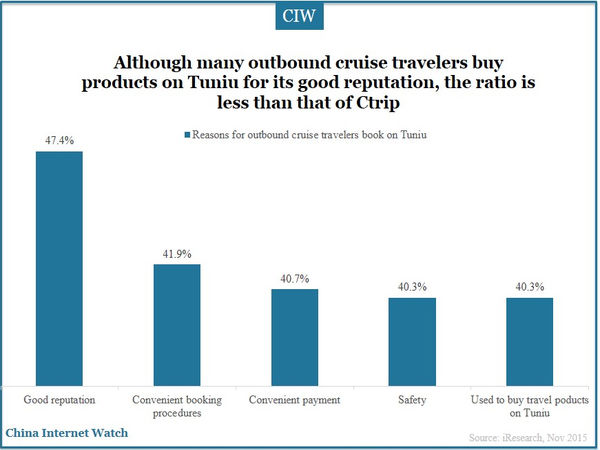
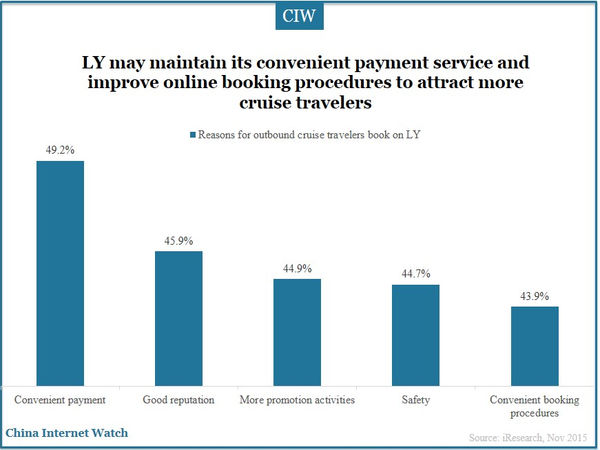
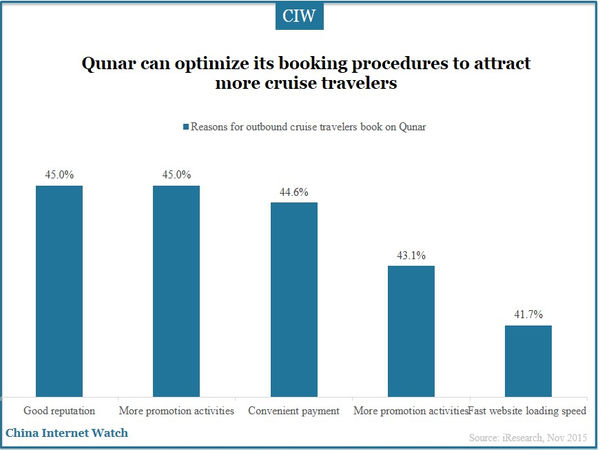
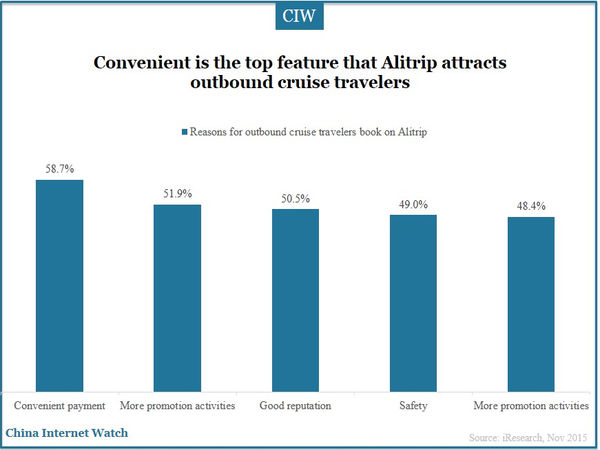
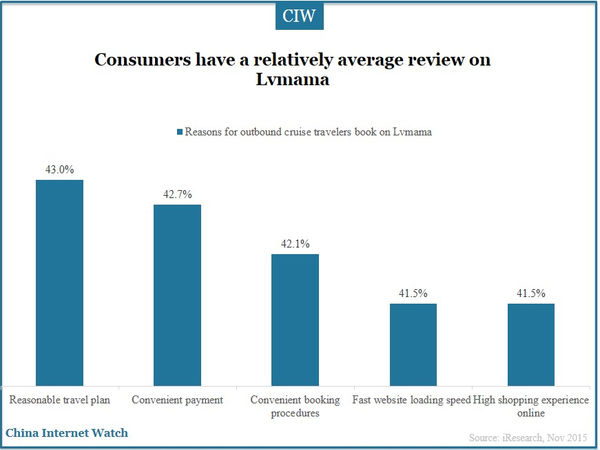
The online travel agencies and online travel websites have made a large contribution to China’s online travel market. Ctrip, Tuniu, LY, Lvmama, Alitrip and Qunar are major online cruise travel webites in China.
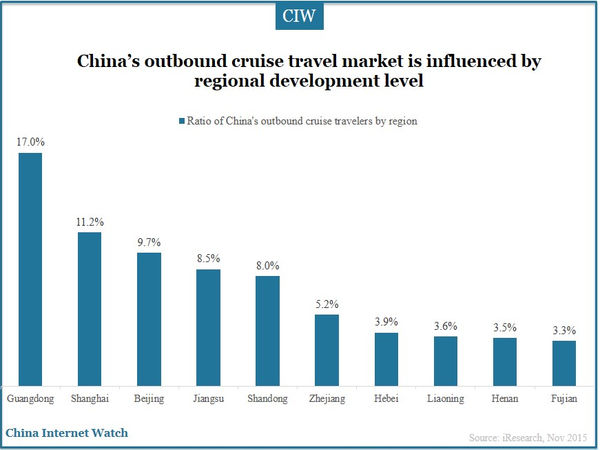
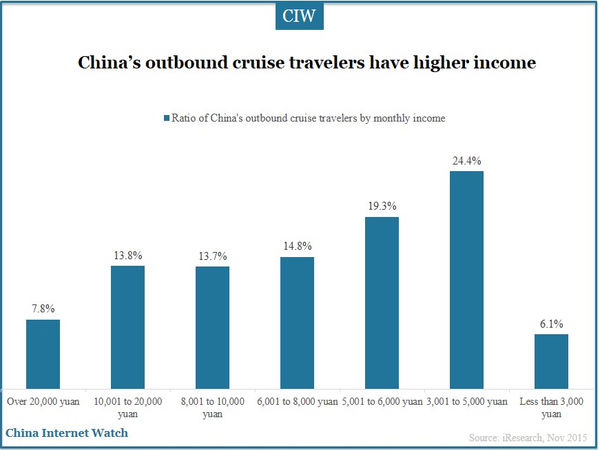
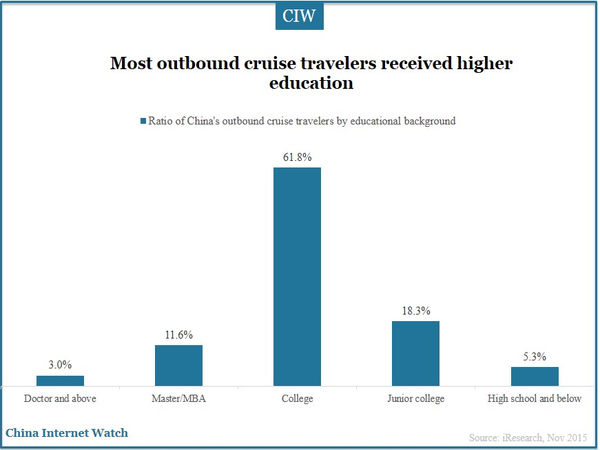
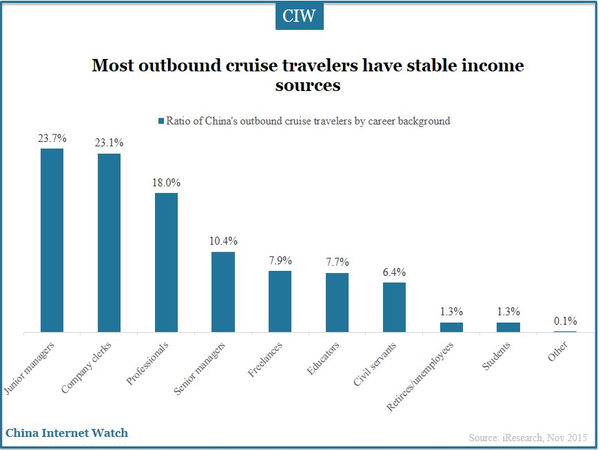
Most of China’s outbound cruise travelers are citizens in large and developed regions such as Beijing, Shanghai and Guangdong. 42.7% gain the monthly income between 3,000 (US$467.94) to 6,000 yuan (US$935.88). The majority of cruise travelers are bachelors who can soon get aware of this new travel method and willing to try it. Travelers with stable income resources account for the bulk.
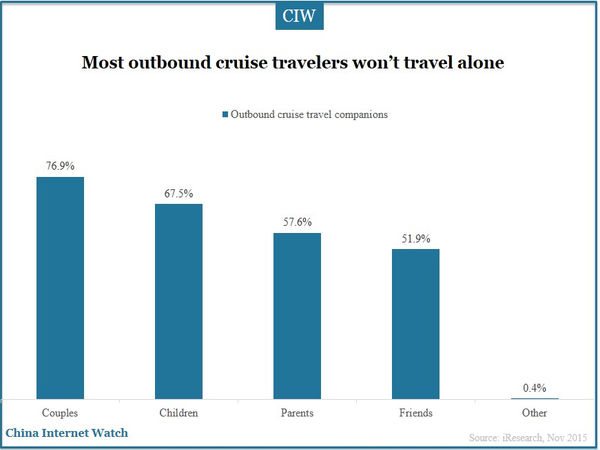
Generally speaking, outbound cruise travelers won’t travel alone which is distinct from free and easy travelers. 76.9% cruise travelers will travel with lovers, 67.5% will travel with children, 57.6% with parents, and 51.9% with friends.
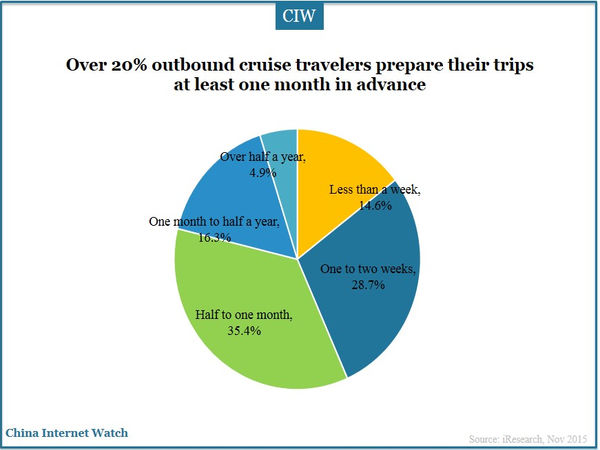
Outbound cruise travelers usually spend much time in preparing for the trips. 35.3% will prepare for travel half to one month in advance.
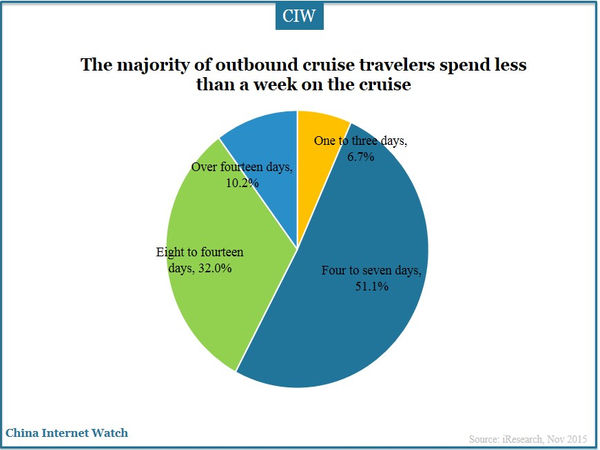
About 57.8% cruise travelers don’t spend more than one week on the cruise. 32.0% tend to spend 8 to 14 days on trips and 10.2% spend over 14 days.
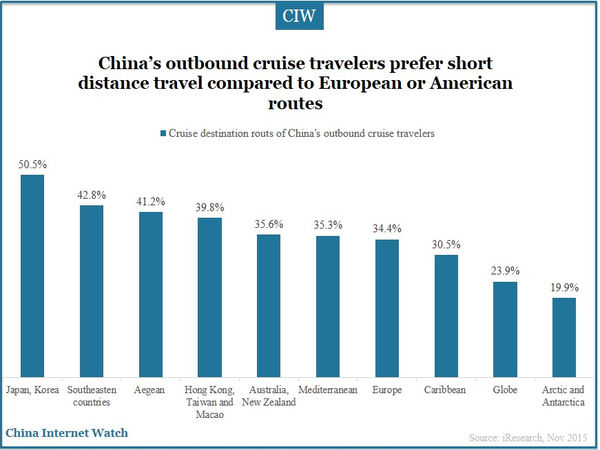
China’s outbound cruise travelers prefer short-distance journeys compared to long-distance trips. Neighboring destinations such as Japan and Korea, Southeastern countries, Aegean, Hong Kong, Taiwan and Macao have a heavy passenger flow volume.
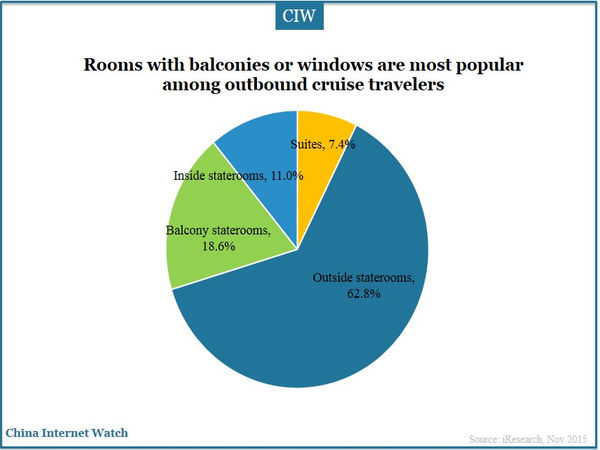
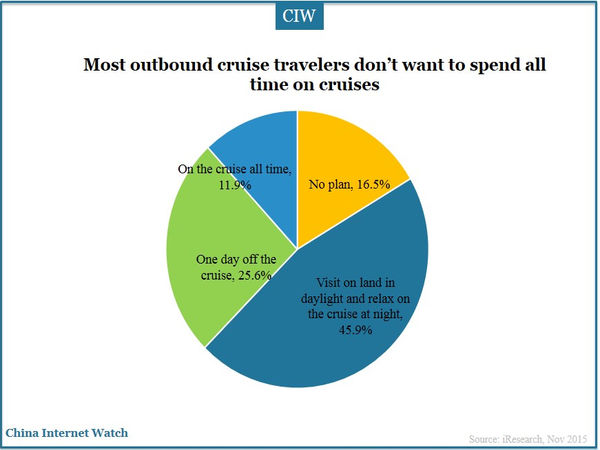
62.8% travelers like outside staterooms where they can see the sea view. The majority don’t want to spend all time on the cruise. Nearly half cruise travelers are inclined to visit on land in daylight and relax on the cruise at night.
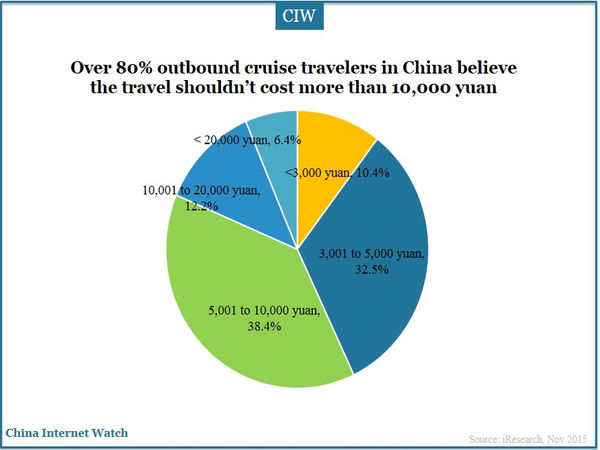
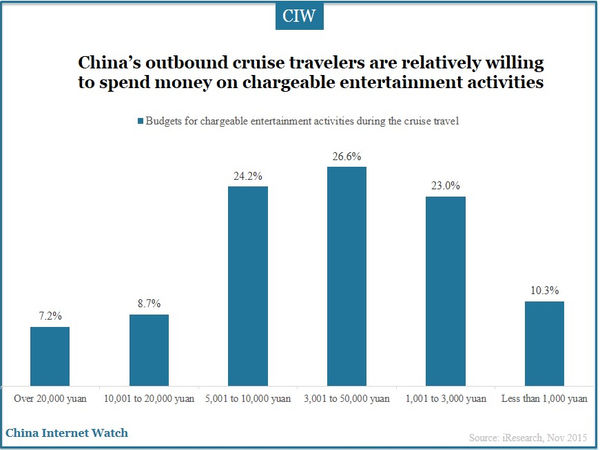
Over 80% outbound cruise travelers plan to spend less than 10,000 yuan (US$1,559.79) on the trips while about 84% are prepared to spend less than 10,000 yuan on chargeable entertainment activities during the travel.
Apart from enjoying the beautiful sea sceneries, outbound cruise travelers also would like to shop at duty-free shops, enjoy delicious foods, and land to watch local sceneries.
China’s online travel market reached 122.23 billion yuan (US$19.07 billion) with a QoQ growth of 18.0% and YoY growth of 45.9% in the third quarter of 2015, among which the online travel agencies gained 5.96 billion yuan (US$0.93 billion) according to iResearch.
A total of 109 million Chinese person-trips visited foreign countries in 2014 according to the World Urban Tourism Federation (WTCF). With the outbound travel and outbound cruise travel penetrated into more China’s users by government’s support and online travel agencies’ favor, the market in China will be further broadened.